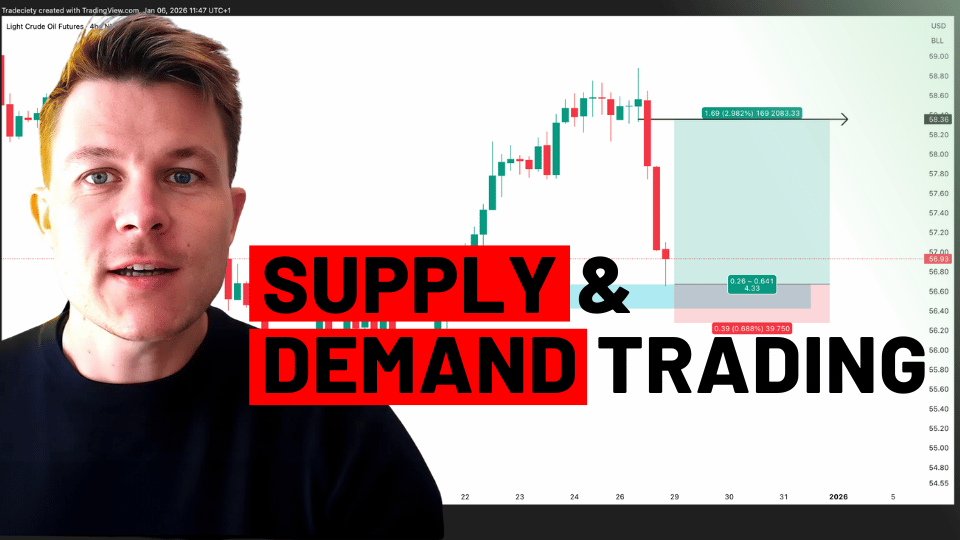Supply and Demand Trading in 2026
We have been trading supply and demand strategies for over ten years, and they have stood the test of time remarkably well. Supply and demand is...

“Our goals can only be reached through a vehicle of a plan, in which we must fervently believe, and upon which we must vigorously act. There is no other route to success.”
– Pablo Picasso
Tony Robbins. Pablo Picasso. Bruce Lee.
On the surface, it may seem like they have nothing in common. At the turn of the 20th Century, Pablo Picasso was an impoverished artist who couldn’t sell his paintings in Paris. Fifty years later, Bruce Lee dropped out of college to fulfill his dream of starting a martial arts studio. Less than a decade after Bruce Lee passed away, Tony Robbins went from serving as the student body president of his high school to working as a janitor in Southern California.
So how did they overcome these challenges to become some of the most successful people in the world? The answer may surprise you!
In 1988, two researchers from the University of Scranton studied the long-term effects of setting goals during the new year.[1]They discovered that only 8% of the participants were able to achieve their goals, while 80% of those who were studied failed to keep their New Year’s Resolutions.
Like many of us, those participants had dreams for their future. From weight loss and health improvement to life and relationship changes, the vast majority of their goals were centered around personal issues that could have easily been addressed in the upcoming year.
And yet, only 8% succeeded. The researchers quickly discovered that their participants’ unrealistic expectations played a big role in their failure to accomplish their goals. To achieve big dreams, they needed big plans that would help them take practical steps toward producing a successful outcome — but those plans were never put into place.
So if you want to build a successful career as a trader, you have to go beyond goal setting – and especially beyond just monetary goals. An ambitious goal is only the first step if you are committed to achieving great things; the next steps will be defined by your personal strategy, and they are crucial to your success. Define your WHY and your purpose.
This is the lesson that Tony Robbins, Bruce Lee, and Pablo Picasso realized early in their careers:
Measurable goals + Consistent action = Successful outcomes.
As a world-renowned author, Antoine de Saint-Exupéry said, “A goal without a plan is just a wish.”
For decades, mindset coaches and self-improvement authors have insisted that they have the secret to setting effective goals — and often times, their advice contradicts the other “gurus” in their field. Either your goal is too ambitious, or it’s not ambitious enough; your goal should be a secret, or you should share your goal with everyone you know; your goal should motivate you, or your goal should be as challenging as possible.
Fortunately, psychological researchers have conducted numerous studies that examine the true strengths of goal setting, and their results are consistent with the practices that the world’s most successful people have used to achieve greatness.
As George T. Doran explained in his articleThere’s a S.M.A.R.T. way to write management’s goals and objectives, an effective goal must have the following characteristics:
It’s SPECIFIC, with a clear explanation for what you want to accomplish, who you are going to accomplish it for, and the amount that you would like to earn, spend or share as a result of accomplishing that goal.
“I would like to make $100k so I can increase my household income and spend more time with my family (the why).”
It’s MEASURABLE, with smaller goals that will allow you to track your progress and make adjustments if you get thrown off course.
“I would like to earn $100k in 36 months.”
It’s ATTAINABLE for you, even if it means that you have to push yourself. The best way to make sure of this is to create a series of steps that will help you accomplish your goal, like joining a community of like-minded traders who follow the same approach with similar goals.
“I” will join a group of like-minded traders, start journaling all my trades, review my trading performance and spend at least 1 hour per day working on myself.”
It’s REALISTIC, or attainable with your current resources (or resources that are available to you). If you can’t realistically achieve your goal with your budget, social network, or current time frame, you might have to make changes to start small and work your way toward larger accomplishments.
“I will invest XXX USD into my trading account and add XX USD every month to my trading account until my average trade size is $1000. Then, reaching my goal of making $100k is doable.”
It’s TIME-RELATED, with a precise time frame that is bound by a start date and an end date that you must stick to.
“I will start on June 1st, and measure my progress each quarter. In addition, I will do weekly reviews with my trading journal.”
But are S.M.A.R.T. goals effective?
Based on the most recent psychological studies, they absolutely are! According to a psychological review on the effects of goal setting on performance, “specific and challenging goals led to higher performance than easy goals, ‘do your best’ goals, or no goals [at all].”[2]
A later study at Dominican University of California found that “76 percent of participants who wrote down their goals, actions and provided weekly progress to a friend successfully achieved their goals.”[3]
This is the perfect time for you to set S.M.A.R.T. goals for your career as a trader, and to take measurable steps to accomplish them this year! Tell us what your #1 S.M.A.R.T. goal is in the comments below!
And if you want to take this to the next level, we developed a unique 5-month trading mindset course.
[1]Norcross, J. C., & Vangarelli, D. J. (1988). The resolution solution: Longitudinal examination of New Years change attempts. Journal of Substance Abuse,1(2), 127-134. doi:10.1016/s0899-3289(88)80016-6
[2]Locke, E. A., Shaw, K. N., Saari, L. M., & Latham, G. P. (1980). Goal setting and task performance: 1969-1980. PsycEXTRA Dataset. doi:10.1037/e522282009-001
[3]Matthews, G. (n.d.). Goals Research Summary. Retrieved from https://www.dominican.edu/academics/lae/undergraduate-programs/psych/faculty/assets-gail-matthews/researchsummary2.pdf

We have been trading supply and demand strategies for over ten years, and they have stood the test of time remarkably well. Supply and demand is...

3 min read
Choosing the right trading journal is essential for traders wanting to analyze performance, refine strategies, and improve consistency. In this...

3 min read
“95% of all traders fail” is the most commonly used trading related statistic around the internet. But no research paper exists that proves this...